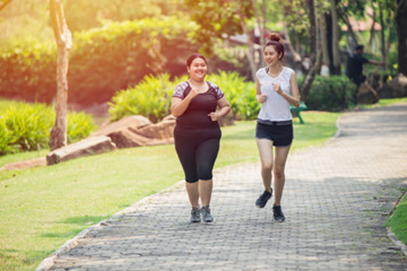
Alpine Academy takes advantage of its proximity to easily accessible recreation to offer its students a wide variety of opportunities for both exercise and fun. The campus is near hiking and horse trails, bowling, swimming, and golf. At the Fitness and Arts Center, the school provides an athletic field and a range of indoor sports as well. Alpine includes exercise within its routine because physical activity can have an extremely positive impact on the mental health of its students. Here, Alpine Academy in Utah reviews some of the mental health benefits of exercise and how these positive changes empower students on their path.
Decreased Stress
There is a scientific bases to how exercise helps decrease stress. Exercise decreases stress hormones such as cortisol while increasing endorphins — which are known as your body’s “feel good” chemicals. This gives your mood a natural boost while you work out. Exercise can also decrease stress by giving young people an outlet for relieving tensions. Some teens have an issue with bottling up their stress or negative emotions until they are too difficult to keep them inside. With exercise, you can have a healthy coping technique built into your routine, helping you relieve stress and center yourself when you experience strong emotions.
Improves Overall Health
Alpine believes that our physical and mental health are linked, which can explain why we may not feel well emotionally when our physical health is not at its best. There are multiple ways that exercise can contribute to better overall health for teens. For example, exercise can improve sleep habits by helping them regulate their circadian rhythm. Circadian rhythm is our built-in alarm clock that controls how tired or alert we feel. Exercise also can increase energy and stamina, build endurance, contribute to weight loss, and reduce cholesterol while improving cardiovascular health.
Increases Self-Esteem and Confidence
Sometimes a negative self-image can be a contributing factor to unhealthy behaviors and routines, starting a cycle that can be difficult to break alone. Exercise can improve self-image and self-esteem in a variety of ways. For example, reaching goals because of regular exercise can give teens a large boost in self-esteem and confidence. Exercise can also help teens with their self-esteem and confidence by improving their overall health. The goal of exercising does not need to be to lose weight. After all, that in and of itself can reinforce negative self-image issues that do not necessarily make us feel more positive. Still, we often feel a definite difference in our health when we make a commitment to being more fit, and this can be an excellent way to drive confidence and improve our personal opinions of ourselves.
Reinforces a Healthy Routine
By nature, we are driven by routines. This can work in our favor or negatively depending on whether the habits that we develop are healthy. Alpine Academy promotes adding exercise into teens’ daily routines in part because it helps them create and develop healthy routines that can keep them on track physically, emotionally, and academically. When teens know how to develop positive routines, it helps them keep sight of goals and empowers them to remain positive as they work towards them. These skills help prevent them from backsliding on their progress and encourages them to find even more positive activities to add to their routine.
